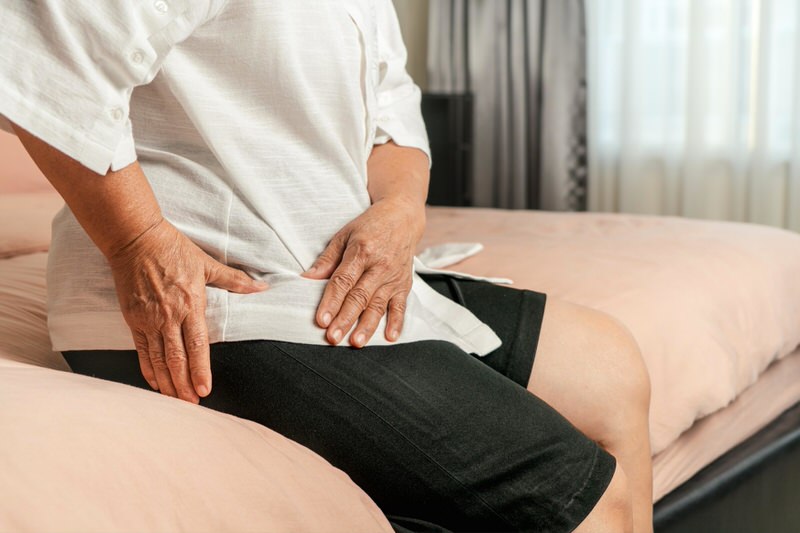A hip replacement surgery affects the muscles in your pelvic area. The muscles impacted during the surgery can lead to bladder issues such as urinary incontinence. The operation and anesthetic can disturb the bladder functions, further worsened by reduced mobility. Additional factors often responsible for peeing are pain medications, confinement to bed, and nerves affected in the surgery. A week after surgery, you need to follow up on your physical therapy and rehabilitation, and pelvic floor exercises will immensely help.
Getting a hip replacement surgery done is not an easy procedure. But once you do get it done with it, you still need to deal with issues, which all come under the aftercare of the surgery.
You could be facing many problems, one of which is peeing a lot after the hip replacement surgery.
While urinary retention is one of the expected effects of surgery, peeing a lot is less common but not completely unheard of after hip replacement.
There are various factors behind why you could be facing issues. Let’s explore these issues and try to find suitable solutions for them.
Things to look out for after hip replacement
Depending on the individual’s needs, you’ll have to stay in hospital for around a week, staying in bed with a cushion for support between your legs. It’s to keep your joint in place, but it also affects your range of motion.
A drainage tube will be placed in your bladder to help you go to the bathroom. A drainage tube is helpful for patients recovering from an extensive surgery such as hip replacement.
It helps reduce the incidence of urinary retention and bladder overdistention without increasing the rate of urinary tract infection.
Medical staff will also monitor your blood pressure, pulse, alertness, pain, comfort level, and medications while you resume your normal activities.
Urinary retention is one of the common problems faced by hip replacement surgery patients. Those with joint replacement surgery are likely to be more at risk (about 1.5 times) than other surgeries.
Reasons for peeing so much after hip replacement

While most patients complain of having urinary retention, some face the opposite of it: urinary incontinence. They complain of frequently going to the bathroom, and it becomes worse during the night.
People with urinary incontinence have to use the bathroom every couple of hours during the night.
The hip replacement surgery involves affecting the muscles around the pelvis area. These muscles also need recovery, and this recovery period can result in urinary incontinence.
The root of the internal obturator muscle is connected to the levator ani muscle. This muscle plays a vital role in supporting the pelvic organs.
Due to the muscle being affected, it’s pretty standard for patients to lose control over their bladder. Hip replacement also brings a high risk of joint sepsis, the inflammation in a joint. This issue is another risk for bladder problems.
However, other factors which are additionally responsible for causing urinary incontinence are:
- The medications you’re supposed to take after the surgery to recover can have specific side effects, one of which also involves your bladder and incontinence issues.
- Bed rest is a must for a hip replacement patient. After the surgery, plenty of rest is vital, and you can’t move your pelvic area at all for a few days. This confinement to bed can affect your mobility (range of motion) and make it difficult to get to the toilet in time. It’s another type of functional incontinence.
- Your nerves are affected too during the surgery. During recovery, you might feel a delayed sensation in your nerves, making it challenging to recognize when you need to urinate. Temporary swelling after surgery can also affect your urination.
Those with hypertension and those who receive specific painkillers are at a higher risk of developing incontinence.
Recovery time for often peeing after hip replacement
You need to give yourself some time days after surgery. While for some patients, it takes a few hours after surgery to resolve their urinary incontinence.
It might take a couple of weeks or even a month for others before they could get control over their bladder situation.
We can see the additional factors are also responsible here, including bed rest, medications, and nerves affected.
If these factors are responsible for your urinary incontinence, you’ll see the effects wearing off once you regain mobility and are off the medications.
Till then, you can use a portable commode if it’s a long walk to the nearest bathroom to avoid any accidents. Doctors recommend rehabilitation and physical therapy days after surgery once they see you’re ready.
Pelvic floor exercises or Kegel exercises help strengthen the urinary sphincter and pelvic floor muscles, which help control urination.
FAQs
How do I train my bladder after catheter removal?
The catheter is removed after 24 hours have passed after your surgery. You can train your bladder by increasing the time of your toilet visits by 15 minutes each time to a maximum of 4 hours.
Doing pelvic floor exercises will help you out immensely.
Does anesthesia affect the bladder?
During the surgery, your body is given anesthesia, and urinary retention is a common after-effect.
The anesthesia drugs often disrupt the neural circuitry that controls the nerves and muscles in the urination process.
They decrease the intra-bladder pressure and inhibit the micturition reflex.
How long does urinary retention after surgery last?
Postoperative urinary retention or commonly known as POUR, is expected to resolve within 4-6 weeks. It happens because the drugs in medications sometimes are responsible for relaxing the bladder muscle, due to which urinary retention occurs.
If the bladder muscle is stretched too much and doesn’t resolve on its own, then there’s a need for external factors to resolve the situation. But it does take a couple of weeks after surgery to get better.
How long does incontinence last after hip replacement?
Incontinence after hip replacement surgery is only temporary. Depending on person to person, it may take a few hours, days, or even weeks to regain control over the bladder.
You can improve your situation by doing Kegel exercises to strengthen your bladder situation.
To summarize
Hip replacement surgery is an operation that involves your pelvic area.
Your muscles around the pelvic area are affected, and this can lead to bladder control problems. After the successful surgery, enough issues and complications might arise and need to be looked after.
While urinary retention is a common issue, urinary incontinence can also occur where you might use the bathroom every couple of hours. It would be best to relax and understand that there’s no set time for recovery after such an operation. It usually takes a couple of weeks after surgery to recover.
These issues might go away once you’re off the medications and focus on improving your mobility and physical therapy.
If you notice other complications or the current issues are only becoming more problematic, it would be the right time to contact your doctor for a follow-up appointment.


